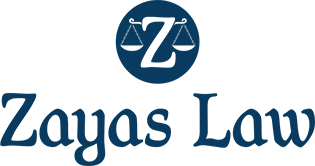Like most states, Connecticut has very strict product liability laws that regulate how companies manufacture, advertise, and retail their products. If a company’s product causes someone harm or leads to property damage, the customer may be able to file a product liability claim against certain negligent parties.
To secure a favorable settlement or verdict in a product liability case, your legal team needs to prove the following facts:
- You have suffered physical injuries and/or monetary losses.
- The product is responsible for your injuries and/or monetary losses.
- The product was defective.
- You used the product per the manufacturer’s instructions.
You can file a claim based on three types of defects: manufacturing defects, design defects, and marketing defects. But who should you file a claim against? Depending on the circumstances surrounding your case, you may be able to sue multiple entities involved in the product’s chain of distribution. For example, you may be able to hold the product’s manufacturer, distributor, and retailer accountable for your injuries and financial losses.
Product Manufacturers
Product manufacturers represent the first link in the chain of distribution. These are the factories that create the products we buy every day, or, at the very least, essential comments of the products. Many companies rely on middlemen during this stage of the process, including foreign trading companies, sourcing agents, and wholesalers, though these figures are notoriously difficult to pin down for damages because they tend to conveniently disappear when there’s a hint of trouble.
In a product liability case, you may need to sue multiple manufacturers depending on how the defective item was designed and which parts are responsible for your injuries. For example, if a stroller breaks after its wheel falls off, the parent of an injured baby may be able to file a claim against the stroller company and the manufacturer that originally made the wheel.
Marketing Companies & Consultants
Defects can also arise during the design and marketing phases. Marketing defects can include improper labeling, inadequate safety warnings, and incomplete instructions. Before a product is retailed, marketers need to consider what instructions a customer will need to properly and safely use the item. Likewise, the marketers need to list how the product should not be used, as well as any potential hazards associated with the product. While many large corporations have their own marketing teams, some businesses outsource to third-party contractors and consultants. Design engineers, quality-control experts, technical advisors, and various other parties can be held liable under this precedent.
Product Retailers
A store can be held liable for your injuries even if they didn’t have anything to do with the design and manufacturing of the product. This policy applies to online and brick-and-mortar stores, though some companies like Amazon have thrived under a business model that circumvents lawsuits involving defective third-party products. Amazon’s agreement with third-party vendors grants the company a unique legal protection known as an indemnification clause. This clause obligates the vendor to cover any liability issues and costs associated with their products. However, this doesn’t mean that Amazon has been able to dodge every lawsuit; separate federal appeals courts in Ohio and Tennessee have recently determined that Amazon could be sued in specific cases involving a hoverboard and a defective retractable dog leash.
FAQs Involving Defective Product Claims
Defective product cases can be challenging to navigate without experienced legal guidance. There are various laws, regulations, exceptions, and contingencies that can impact the outcome of your case.
The product liability attorneys at Zayas Law Firm have been representing the wrongfully injured of Connecticut since 1990. Our experienced legal team has helped countless clients secure damages in cases involving defective products. To help you determine if you have grounds to file a claim, our legal team has compiled the following summary of information:
- Can I pursue damages against a foreign company? The short answer to this question is yes, but your ability to secure damages may be affected by case-specific factors and international laws. Generally, any foreign company that does business in the United States can be held liable for a defective product in a U.S. court of law. Because there can be extenuating circumstances and legalities, it’s important to discuss your case with a qualified lawyer before taking legal action.
- Can I sue even if I didn’t purchase the product? Yes. If you were harmed by a defective product, you can file a claim against any negligent parties that contributed to your injuries.
- Can I file a claim if I was harmed by a used product? The answer to this question can be a little tricky and depends entirely upon the circumstances surrounding your individual situation. For example, you can’t file a claim if you knew the defective product was old, damaged, or in questionable condition before you purchased it. However, you may be able to file a lawsuit if the store misrepresented the product.
Have You Been Harmed by a Defective Product?
Unfortunately, it’s the threat of lawsuits and large settlements that keep greedy corporations in line. Contact the product liability attorneys at Zayas Law Firm if you or a loved one has been injured or killed by a defective product. We can investigate the product, estimate the maximum value of your claim, and develop a litigation strategy that proves the negligent parties are responsible for your physical condition and financial losses. With our assistance, you can recover a settlement or verdict that covers any injury-related expenses and/or property damage costs associated with the defective product.
Call Zayas Law Firm at (888) 486-3037 to schedule a case evaluation today. We provide our services on a contingency fee basis.

